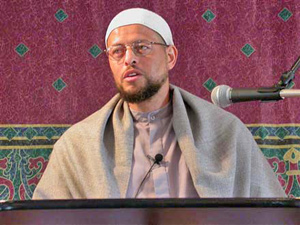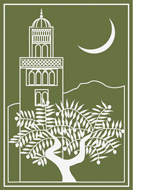-Staff Writer-
Islamic institution of higher education fosters climate of understanding and tolerance

Photo courtesy, Zaytuna College
With all of the educational diversity America offers why start a Muslim college?
“The establishment of Muslim institutions of higher education in the United States is part of the natural evolution and maturity of our community. We have reached the stage where we have scholars who are conversant in both the Muslim sciences and the western intellectual tradition,” Imam Zaid Shakir, co-founder of Zaytuna College, told The Final Call.
“To create institutions where students can become conversant with the Islamic Sciences, while gaining a deep understanding of the nuances and complexities of western societies will be critical if Islam is to maintain it’s viability here in the West and contribute in meaningful ways to the conversations that are shaping our world.”
Islam now joins other religions with universities and colleges in the United States.
It’s not the typical school parents send their 18-year-olds to attend even though five of the first class of 15 are “pure” freshman. Most have a prior degree.
Meet Chris Cusano from Orlando, Fl. He has a MS in Political Science and found his way to Berkeley, California to attend Zaytuna College.
“This is a religious institution within our society. It’s a unique opportunity for someone to learn the religion in this environment. One of the most beneficial aspects is that the professors and teachers are unique,” he told The Final Call.
“They’ve been traditionally taught but have grown up in this society. So they know how to live it in a western society. You learn hands on. You learn every day things you’ll be able to use. If you were to study this religion overseas the realities you would encounter would be different. They teach what they have lived and learned.”
The “they” are founders Dr. Hatem Bazian, Imam Zaid Shakir and Shaykh Hamza Yusuf. The imam and shaykh are considered “stars” in the faith with a specific outreach and attraction to young believers. They attract sell out crowds to their speaking engagements.
Zaytuna Institute was founded by Shaykh Hamza in 1996 and rapidly established a national reputation for providing premier educational programs, publications, and audio and visual materials for the Muslim community.

According to the college’s Web site, “Olives (zaytunah) are second only to figs in Berg’s table of purifying foods. Unlike other fruits, olives must be treated by human hands in order to become palatable food. The process of curing olives has long been used as a metaphor for the maturing of the human heart,” thus the name, Zaytuna College.
The Web site further explains, “One of the greatest universities in the history of Islam, Jami’ah al-Zaytunah in Tunis, provided intellectual and spiritual oil that illuminated Africa for over a thousand years. Ibn ‘Arafah, Imam Maziri, and countless other great scholars taught there, preserving the knowledge and sciences of Islam. Taking its name from this venerable tradition, Zaytuna College seeks to revive the tradition of sound Islamic teaching institutions.”
The school offers two majors, Islamic Law and Theology and Arabic Language.
“The foundation of everything we do should be rooted in the religion. To better understand the religion you must speak Arabic. This is a rigorous program. All of our students are full time,” said Imam Shakir. “We are contributing to a sound understanding of the religion in a part of the world where there is increasing misunderstanding.”
The school is working towards accreditation. It will bring in a second class next year and add additional majors by year three or four.
“We need institutions of higher learning that will shape Muslim youth and produce Muslims that will lead the Muslim community and be contributors to society in general,” said Dr. Ihsan Bagby, Professor of Islamic Studies at the University of Kentucky.
“Students will get a thorough exposure to Islamic points of view and engage in debate on Muslim issues. They will be exposed to more of the mindset at Zaytuna College than at a secular institution.”
(For more information, visit their Web site at http://www.zaytunacollege.org.)












